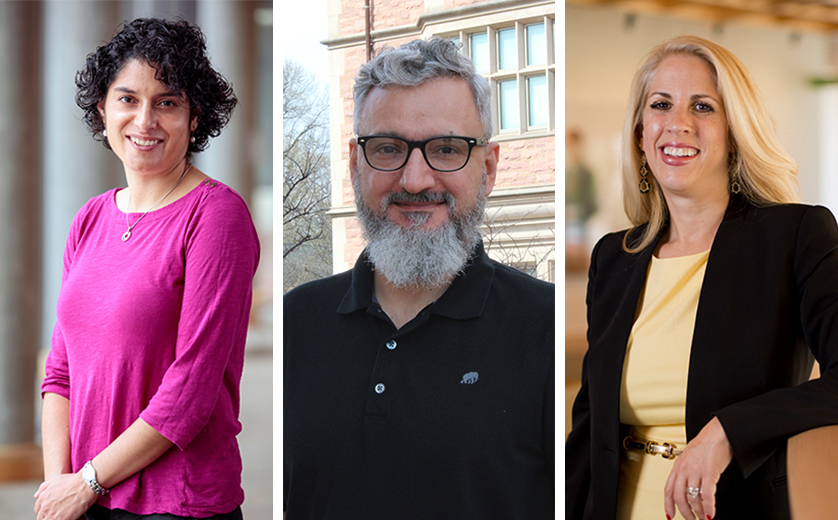To help address the international social, economic and public health ramifications of the outbreak, the McDonnell International Scholars Academy recently awarded $250,000 in seed grants to kick-start research projects led by Washington University faculty members and their international collaborators.
Three Brown School faculty members were among the awardees: Professor Rodrigo Reis, Assistant Professor Deborah Salvo, and Michal Grinstein-Weiss, Shanti K. Khinduka Distinguished Professor.
The call for proposals was met with a strong response: 34 teams from six of the university’s schools — with collaborators from 23 international partner institutions — presented projects for consideration. Eleven ultimately were chosen and received awards of up to $50,000. The projects will explore ways to address the global pandemic, but also help further solidify relationships forged between researchers at Washington University and their colleagues around the world.
Reis and Salvo will collaborate with Guillermo Rosas, a professor of political science at Washington University in St. Louis, to investigate the interaction of political attitudes and public health in the COVID-19 era in Brazil, Colombia, Chile, and Mexico.
Together the trio will lead an international, interdisciplinary team of epidemiologists and social scientists in the United States and Latin America.
Grinstein-Weiss’ project will compare the immediate and long-term economic impacts of COVID-19 on household welfare in Israel and the United States. This dovetails with her research at the Social Policy Institute at Washington University in St. Louis, where she serves as inaugural director.
The funded teams now will get to work tackling far-reaching COVID-19-related issues. In addition to the projects led by Brown School faculty, projects will focus on the pandemic’s impact on the retirement process in the United States, South Korea and Australia; HIV care in Ghana, Brazil and the United States; and intimate partner violence in St. Louis, Uganda and Chile. The teams expect to gain more insight into these problems by studying the phenomenon in multiple countries and by drawing on top experts from around the world.
“COVID 19 has been one of the most disruptive forces the world has experienced in decades,” said Kurt Dirks, vice chancellor for international affairs. “Our faculty were eager to tackle the multitude of problems, in collaboration with experts from across the globe, but needed some immediate resources to get started. Thanks to the generosity and foresight of Bethany and Bob Millard, the McDonnell Academy was able to provide the support needed to begin this very important work. The research is expected to yield insights to address the current problems.”
The Millards served as chairs of the Parents Council, Washington University’s undergraduate parent leadership group, this past academic year.
